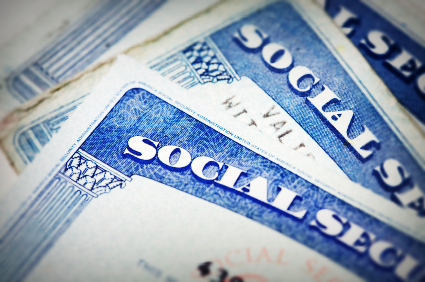
Two different parts of the government have recently taken useful but quiet initial steps in immigration control – but will these moves lead to really significant ones later? Both initiatives should have been done years ago.
The more important of the two was the decision by the Social Security Administration, routinely a useless player in immigration enforcement, to start sending again (as it did prior to 2012) the so-called "no match letters" to employers, telling them that specific workers on their payrolls had Social Security numbers (SSNs) that had been issued to someone else.
The lesser move was an announcement that a similarly passive entity, an arm of Immigration and Customs Enforcement (ICE) called the Student and Exchange Visitor Program (SEVP), is going to raise the current fees on foreign students, and to some extent those on the institutions that educate them.
The "no match" letters will be passed on by the employers to the workers in questions, who will be encouraged to straighten out their SSNs. Most will be unable to do so. If, after the passage of time, the worker with the unmatched SSN stays on the employer's payroll that fact could be used to show that the employer was not in compliance with the law.
The new fee levels include a real money-maker for the government, an increase from $200 to $350 for each incoming new F-1 (academic) or M-1 (vocational training) student. The excessively modest fee for a certificate to run a school for foreign students will be inched up from $1,700 to $3,000, and there will a new fee, set at $1,250, for re-certification of such schools. Homeland Security did not say so, but increasing the cost of an education in the U.S. might discourage some foreign students from coming to the US. Nor did it say that the extra fees might support some transfers of funds within DHS from SEVP to enforcement agencies – which might well happen in the future.
So far, so good, but will the government use this new information (on SSNs) and new fees to do more to really help enforcement? Here are some suggestions along those lines:
SSNs. Once the worker has been unable (or unwilling) to correct the SSN on the books of the government, then SSA should:
- forward those numbers to the IRS, allowing that agency to deny income tax refunds from those with phony numbers. It would save the government billions each year;
- forward to ICE the names of employers with, say, 20 or more bad SSNs so that agency could move against both the employer and the workers involved.
Fees. Once these moneys start rolling into SEVP it should:
- start cracking down on the more obvious visa mills, something it has not done for years; these are educational entities more interested in collecting tuition and providing work permits to aliens than they are in educating anyone;
- conduct on-site enforcement actions against employers misusing the Optional Training Program by, for example, hiring college grads as construction workers;
- check on the extent to which schools it licenses for foreign students are actually employing the H-1B workers they obtain; the Gulen cult schools keep hiring administrators and computer and public relations workers well above any apparent level of need.
One hopes that at least some of these suggested operations will begin soon.
